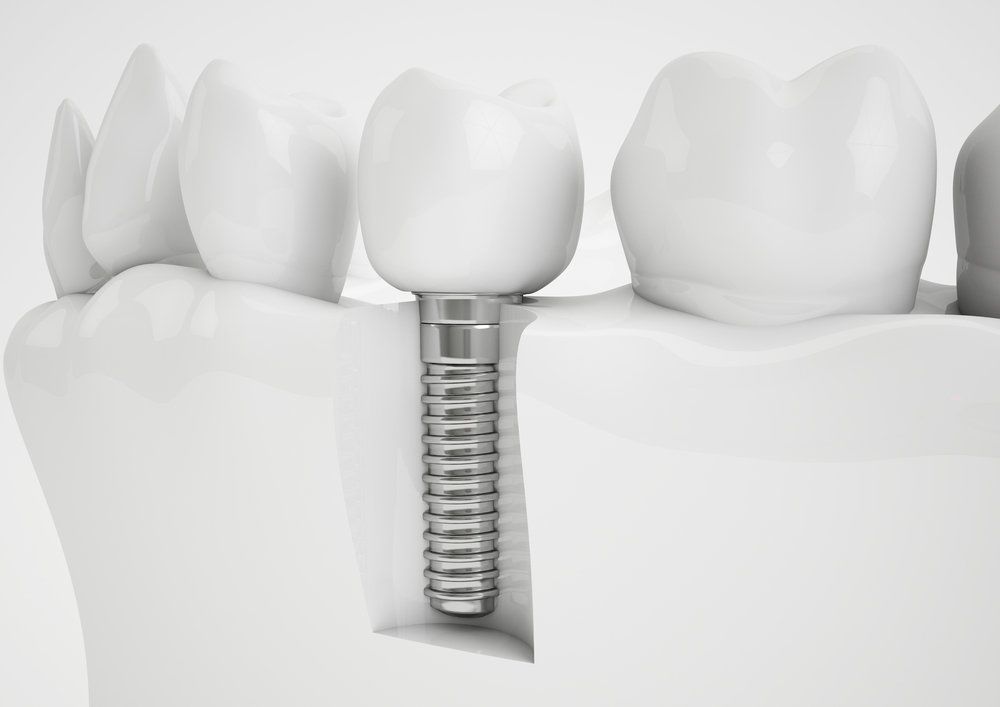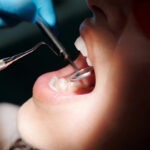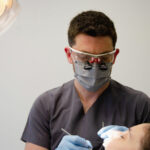 If you are missing a tooth or multiple teeth, you may want to consider dental implants to support a crown, bridge, or denture. The implant serves as an artificial tooth root that supports a restoration. When treatment is completed, an implant-supported restoration closely resembles natural teeth.
If you are missing a tooth or multiple teeth, you may want to consider dental implants to support a crown, bridge, or denture. The implant serves as an artificial tooth root that supports a restoration. When treatment is completed, an implant-supported restoration closely resembles natural teeth.
Dr. Steven Hochfelder places and restores dental implants at his office in Lake Mary, FL, and has helped craft custom smile solutions for many patients. Recovery from dental implant surgery looks different for everyone. Here are seven dental implant aftercare tips to make the process as smooth as possible.
1. Take Post-Op Medications
As the effects of anesthesia wear off, you may experience some discomfort. Dr. Hochfelder will prescribe pain medication for any severe post-operative pain, and antibiotics to prevent infection. Please take all prescription and over-the-counter medications as directed.
2. Use Cold Compresses
Swelling is a common side effect after surgery. Cold compresses (like ice packs or a bag of frozen peas) can help reduce swelling. Apply cold compresses as needed for 20 minutes at a time, with a 20-minute break between each application. This will help manage swelling and discomfort without harming your skin and underlying tissues.
3. Monitor Excessive Bleeding
Expect light bleeding in the first 24 hours after getting dental implants. If you experience excessive bleeding, you can place gauze directly over the surgical site for 30 minutes. Repeat the process if bleeding continues, and call Dr. Hochfelder so the matter can be addressed as soon as possible.
4. Eat a Proper Diet
A nutrient-rich, high-protein diet is essential for the dental implant recovery process. It’s also a good idea to eat foods that do not require a lot of chewing until you have fully recovered. After your oral surgery, enjoy soft foods such as:
- Milkshakes
- Smoothies
- Protein shakes
- Pasta
- Mashed potatoes
- Pancakes
- Eggs
Drinking straws and carbonated beverages can disturb the wound, so be sure to avoid those. It’s also a good idea to avoid spicy foods, which irritate the incision site, and foods with small seeds and crumbs that can get into the incision sites.
5. Practice Good Oral Hygiene
You may resume brushing and flossing after dental implant surgery, but be gentle and avoid disturbing the surgical site. Saltwater rinses are also beneficial after oral surgery to keep your mouth clean and the surgical site sanitary. Be sure to follow our instructions for post-op dental hygiene closely.
Once you are fully healed, continue to brush and floss regularly. You may want to consider thick floss and a proximal brush to clean around the dental implant, and a soft hand towel to wipe your gums clean.
6. Attend Follow-up Visits
After your dental implants are placed, there will be a few follow-up visits at our Lake Mary practice. Be sure to attend these checkups as scheduled, and to also schedule regular cleanings and checkups every six months. This professional attention will help monitor the health and quality of your dental implants.
7. Avoid Tobacco Products
Avoid smoking and chewing tobacco. Tobacco products slow down the healing process and increase your risk of gum disease and implant failure. It’s important that dental implant patients kick the habit for good for long-term success.
Discuss Dental Implant Options
If you have additional questions about dental implant surgery and how to make the benefits last, message us online. You can also call our office in Lake Mary at (407) 321-8900.














